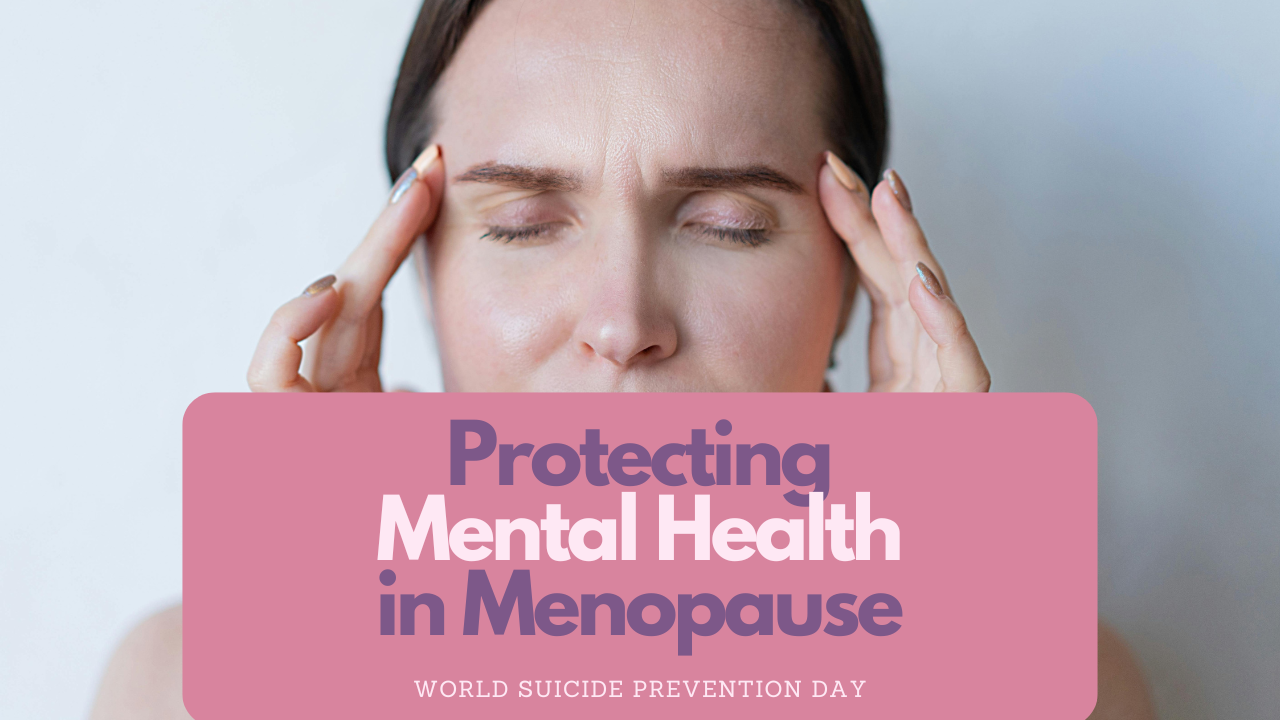World Suicide Prevention Day: Protecting Mental Health in Menopause
Sep 10, 2025
Every year, World Suicide Prevention Day shines a light on an issue that too often hides in the shadows. It’s a day to open up conversations about mental health, reduce stigma, and remind each other that help and hope are always available.
For women in midlife, this awareness carries a unique importance. Menopause and perimenopause are times of profound hormonal, physical, and emotional change. And while society often treats menopause as a purely physical transition, the impact on mental health is just as real and sometimes overwhelming.
The Hidden Struggles of Menopause and Mental Health
Hormones like estrogen and progesterone don’t just regulate fertility — they influence mood, sleep, energy, and even brain chemistry. As these levels shift in midlife, many women experience:
- Increased anxiety or panic attacks
- Sudden mood swings
- Low motivation or fatigue
- Sleep disturbances
- Brain fog or feelings of disconnection
For some, these changes tip into depression or a deep sense of hopelessness. Add life stresses, careers, caregiving, aging parents, and shifting family roles and it’s no wonder that mental health feels fragile at this stage.
Why Suicide Prevention Awareness Matters at Midlife
Research shows that women in perimenopause and menopause face a higher risk of depression compared to other stages of life. But these struggles often go unspoken, dismissed as “just hormones” or brushed off as part of aging.
By connecting suicide prevention awareness with menopause, we highlight an important truth: mental health challenges in midlife deserve the same attention and compassion as any other health issue.
Protecting Mental Health in Menopause
You don’t have to navigate this transition alone. Here are steps that support mental health during menopause:
- Talk About It
Sharing your struggles with a trusted friend, partner, or therapist reduces isolation. Breaking the silence is often the first step toward healing. - Support Your Body
Balanced nutrition, regular movement, and quality sleep all play a role in mood and resilience. Small daily choices build a stronger foundation. - Practice Stress Management
Breathwork, meditation, or yoga can lower cortisol and help stabilize emotional ups and downs. - Seek Professional Help
If mood changes feel heavy or persistent, reach out to your doctor. Therapy, support groups, or medical options can be life-changing. - Stay Connected
Community matters. Whether it’s friends, online groups, or local support circles, connection protects against loneliness, a major risk factor for poor mental health.
A Message of Hope
On World Suicide Prevention Day, the reminder is clear: you are not alone, and your struggles are valid. Menopause may bring challenges, but it can also be a time of renewal and rediscovery with the right support.
If you’re reading this and feeling overwhelmed, please know that help is available. In the UK, you can call Samaritans at 116 123. In the US, dial 988 for the Suicide & Crisis Lifeline. And wherever you are in the world, reach out, someone is ready to listen.
The Takeaway
Menopause is not just a physical change, it’s an emotional one too. Protecting mental health during this stage is vital, and awareness days like this one remind us that silence saves no one.
This World Suicide Prevention Day, let’s commit to more compassion, more conversations, and more support for women in midlife. Because your story doesn’t end here, it can begin again with strength, hope, and connection.
Stay connected with news and updates.
Join our mailing list to receive the latest news and updates from our team.
Don't worry, your information will not be shared.
We hate SPAM. We will never sell your information, for any reason.



